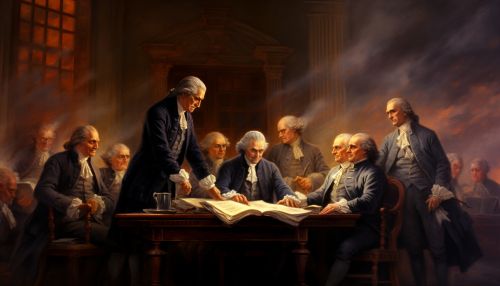American Revolution
Origins of the American Revolution
The American Revolution was a period of political upheaval that took place between 1765 and 1783 during which colonists in the Thirteen American Colonies rejected the British monarchy and aristocracy, overthrew the authority of Great Britain, and founded the United States of America. The Revolution was the result of a series of social, political, and intellectual transformations in American society, government and ways of thinking.


Starting in 1765, members of American colonial society argued the position that the colonies were not legally subject to the taxation of the British crown and had the right to govern themselves. These arguments led to widespread protests by colonists beginning with the Stamp Act of 1765, and the Boston Tea Party in 1773 during which colonists destroyed a consignment of taxed tea from the Parliament of Great Britain. The British responded by imposing punitive laws—the Coercive Acts—on Massachusetts in 1774, following which, representatives from the Thirteen Colonies convened the First Continental Congress to coordinate a colonial boycott of British goods.
Revolutionary War
The American Revolutionary War began in 1775 as open conflict between the united North American thirteen colonies and Great Britain. Over the course of the war, both sides used military tactics including regular warfare and guerrilla warfare. The conflict was a world war, as it spread to multiple countries including France, Spain, and the Netherlands, who joined the colonies against Britain.


The war ended in 1783 with the signing of the Treaty of Paris. Britain recognized the independence of the United States and the states' sovereignty over their territory with mutually agreed upon boundaries. In addition to recognition, the treaty also resulted in territorial cessions from Britain to the United States.
Aftermath and Impact
The American Revolution had a significant impact both domestically and internationally. Domestically, it led to the ratification of the United States Constitution, establishing a strong federal government with a system of checks and balances. The Revolution also resulted in an unprecedented level of political and social freedom for its citizens and set a precedent for future democratic governments.
Internationally, the Revolution had significant effects. In Europe, it was seen as the first successful implementation of Enlightenment ideas of government, and inspired similar revolutionary movements across the continent.


